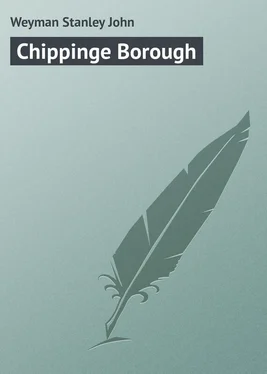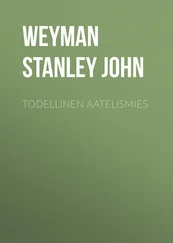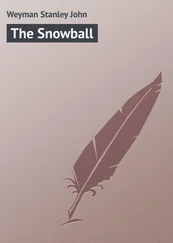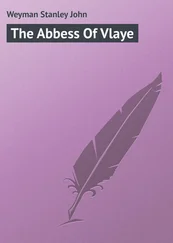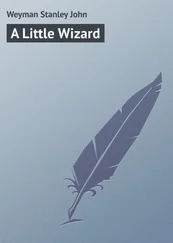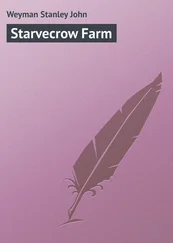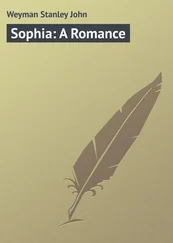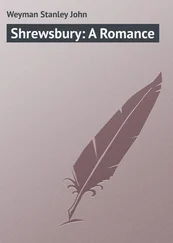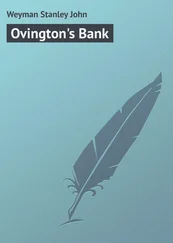Stanley Weyman - Chippinge Borough
Здесь есть возможность читать онлайн «Stanley Weyman - Chippinge Borough» — ознакомительный отрывок электронной книги совершенно бесплатно, а после прочтения отрывка купить полную версию. В некоторых случаях можно слушать аудио, скачать через торрент в формате fb2 и присутствует краткое содержание. Жанр: foreign_prose, на английском языке. Описание произведения, (предисловие) а так же отзывы посетителей доступны на портале библиотеки ЛибКат.
- Название:Chippinge Borough
- Автор:
- Жанр:
- Год:неизвестен
- ISBN:нет данных
- Рейтинг книги:4 / 5. Голосов: 1
-
Избранное:Добавить в избранное
- Отзывы:
-
Ваша оценка:
- 80
- 1
- 2
- 3
- 4
- 5
Chippinge Borough: краткое содержание, описание и аннотация
Предлагаем к чтению аннотацию, описание, краткое содержание или предисловие (зависит от того, что написал сам автор книги «Chippinge Borough»). Если вы не нашли необходимую информацию о книге — напишите в комментариях, мы постараемся отыскать её.
Chippinge Borough — читать онлайн ознакомительный отрывок
Ниже представлен текст книги, разбитый по страницам. Система сохранения места последней прочитанной страницы, позволяет с удобством читать онлайн бесплатно книгу «Chippinge Borough», без необходимости каждый раз заново искать на чём Вы остановились. Поставьте закладку, и сможете в любой момент перейти на страницу, на которой закончили чтение.
Интервал:
Закладка:
He was thinking of this as he paced slowly up and down the broad walk beside the Garden Pool, at Stapylton-a solitary figure dwarfed by the great elms. The placid surface of the pool, which mirrored the shaven lawns beyond it and the hoary church set amidst the lawns, the silence about him, broken only by the notes of song-birds or a faint yelp from the distant kennels, the view over the green undulations of park and covert-all vainly appealed to him to-day, though on summer evenings his heart took sad and frequent leave of them. For that which threatened him every day jostled aside for the present that which must happen one day. The home of his fathers might be his for some years yet, but shorn of its chief dignity, of its pride, its mastery; while Calne-Calne would survive, to lift still higher the fortunes of those who had sold their king and country, and betrayed their order.
Daily a man and horse awaited the mail-coach at Chippenham that he might have the latest news; and, seeing a footman hurrying towards him from the house, he supposed that the mail was in. But when the man, after crossing the long wooden bridge which spanned the pool, approached with no diminution of speed, he remembered that it was too early for the post; and hating to be disturbed in his solitary reveries, he awaited the servant impatiently.
"What it is?" he asked.
"If you please, Sir Robert, Lady Lansdowne's carriage is at the door."
Only Sir Robert's darkening colour betrayed his astonishment. He had made his feelings so well known that none but the most formal civilities now passed between Stapylton and Bowood.
"Who is it?"
"Lady Lansdowne, Sir Robert. Her ladyship bade us say that she wishes to see you urgently, sir." The man, as well as the master, knew that the visit was unusual.
The baronet was a proud man, and he bethought him that the drawing-rooms, seldom used and something neglected, were not in the state in which he would wish his enemy's wife to see them. "Where have you put her ladyship?" he asked.
"In the hall, Sir Robert."
"Very good. I will come."
The man hastened away over the bridge, and Sir Robert followed, more at leisure, but still quickly. When he had passed the angle of the church which stood in a line with the three blocks of building, connected by porticos, which formed the house, and which, placed on a gentle eminence, looked handsomely over the park, he saw that a carriage with four greys ridden by postillions and attended by two outriders stood before the main door. In the carriage, her face shaded by the large Tuscan hat of the period, sat a young lady reading. She heard Sir Robert's footstep, and looked up, and in some embarrassment met his eyes.
He removed his hat. "It is Lady Louisa, is it not?" he said, looking gravely at her.
"Yes," she said; and she smiled prettily at him.
"Will you not go into the house?"
"Thank you," she replied, with a faint blush; "I think my mother wishes to see you alone, Sir Robert."
"Very good." And with a bow, cold but perfectly courteous, he turned and passed up the broad, shallow steps, which were of the same time-tinted lichen-covered stone as the rest of the building. Mapp, the butler, who had been looking out for him, opened the door, and he entered the hall.
In his heart, which was secretly perturbed, was room for the wish that he had been found in other than the high-buttoned gaiters and breeches of his country life. But he suffered no sign of that or of his more serious misgivings to appear, as he advanced to greet the still beautiful woman, who sat daintily warming one sandalled foot at the red embers on the hearth. She was far from being at ease herself. Warnings which her husband had addressed to her at parting recurred and disturbed her. But it is seldom that a woman of the world betrays her feelings, and her manner was perfect as he bent low over her hand.
"It is long," she said gently, "much longer than I like to remember, Sir Robert, since we met."
"It is a long time," he answered gravely; and when she had reseated herself he sat down opposite her.
"It is an age," she said slowly; and she looked round the hall, with its panelled walls, its deep window-seats, and its panoply of fox-masks and antlers, as if she recalled the past, "It is an age," she repeated. "Politics are sad dividers of friends."
"I fear," he replied, in a tone as cold as courtesy permitted, "that they are about to be greater dividers."
She looked at him quickly, with appeal in her eyes. "And yet," she said, "we saw more of you once."
"Yes." He was wondering much, behind the mask of his civility, what had drawn her hither. He knew that it could be no light, no passing matter which had brought her over thirteen miles of Wiltshire roads to call upon a man with whom intercourse had been limited, for years past, to a few annual words, a formal invitation as formally declined, a measured salutation at race or ball. She must have a motive, and a strong one. It was only the day before that he had learned that Lord Lansdowne meant to drop his foolish opposition at Chippinge; was it possible that she was here to make a favour of this? And perhaps a bargain? If that were her errand, and my lord had sent her, thinking to make refusal less easy, Sir Robert felt that he would know how to answer. He waited.
VII
THE WINDS OF AUTUMN
Lady Lansdowne looked pensively at the tapering sandal which she held forward to catch the heat. "Time passes so very, very quickly," she said with a sigh.
"With some," Sir Robert answered. "With others," he bowed, "it stands still."
His gallantry did not deceive her. She knew it for the salute which duellists exchange before the fray, and she saw that if she would do anything she must place herself within his guard. She looked at him with sudden frankness. "I want you to bear with me for a few minutes, Sir Robert," she said in a tone of appeal. "I want you to remember that we were once friends, and, for the sake of old days, to believe that I am here to play a friend's part. You won't answer me? Very well. I do not ask you to answer me." She pointed to the space above the mantel. "The portrait which used to hang there?" she said. "Where is it? What have you done with it? But there, I said I would not ask, and I am asking!"
"And I will answer!" he replied. This was the last, the very last thing for which he had looked; but he would show her that he was not to be overridden. "I will tell you," he repeated. "Lady Lansdowne, I have destroyed it."
"I do not blame you," she rejoined. "It was yours to do with as you would. But the original-no, Sir Robert," she said, staying him intrepidly-she had taken the water now, and must swim-"you shall not frighten me! She was, she is your wife. But not yours, not your property to do with as you will, in the sense in which that picture-but there, I am blaming where I should entreat. I-"
He stayed her by a peremptory gesture. "Are you here-from her?" he asked huskily.
"I am not."
"She knows?"
"No, Sir Robert, she does not."
"Then why," – there was pain, real pain mingled with the indignation in his tone-"why, in God's name, Madam, have you come?"
She looked at him with pitying eyes. "Because," she said, "so many years have passed, and if I do not say a word now I shall never say it. And because-there is still time, but no more than time."
He looked at her fixedly. "You have another reason," he said. "What is it?"
"I saw her yesterday. I was in Chippenham when the Bristol coach passed, and I saw her face for an instant at the window."
He breathed more quickly; it was evident that the news touched him home. But he would not blench nor lower his eyes. "Well?" he said.
"I saw her for a few seconds only, and she did not see me. And of course-I did not speak to her. But I knew her face, though she was changed."
Читать дальшеИнтервал:
Закладка:
Похожие книги на «Chippinge Borough»
Представляем Вашему вниманию похожие книги на «Chippinge Borough» списком для выбора. Мы отобрали схожую по названию и смыслу литературу в надежде предоставить читателям больше вариантов отыскать новые, интересные, ещё непрочитанные произведения.
Обсуждение, отзывы о книге «Chippinge Borough» и просто собственные мнения читателей. Оставьте ваши комментарии, напишите, что Вы думаете о произведении, его смысле или главных героях. Укажите что конкретно понравилось, а что нет, и почему Вы так считаете.
